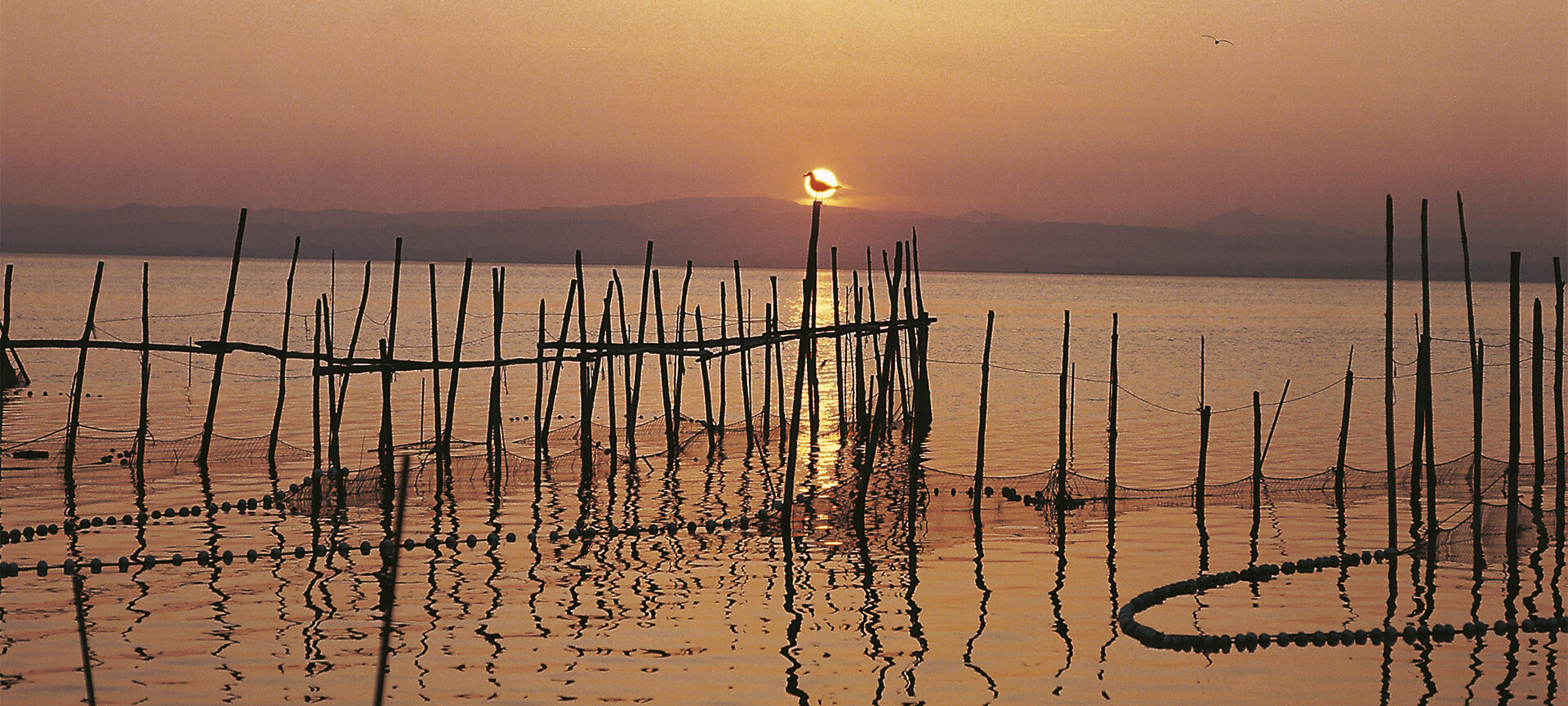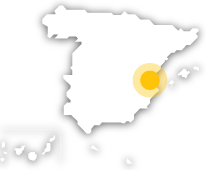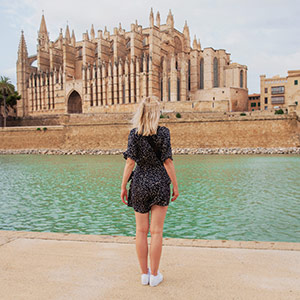
L'Albufera Natural Park in Valencia

This former marine gulf, now a freshwater lake, is one of the most important wetlands in Spain.
This lake belongs to the List of Wetlands of International Importance (Ramsar Convention). In addition, it has been declared a ZEPA (Special Protection Zone for Birds). The area affected by this declaration is the Albufera lake, its wetlands and the coastal bar or strip (Dehesa del Saler) adjacent to both.The formation of the Albufera is the result of rivers depositing sediments over millennia, eventually creating around 30 kilometres of coastal barrier between Valencia and Cullera, thereby closing off the gulf that once existed here. The profile of the Albufera is irregular, with a diameter of approximately six kilometres at its widest point. The lake connects with the sea through canals or inlets, which are opened or closed by means of gates, modifying the volume of the lake's waters. Inside the Albufera there are six islets: la Mata del Fang, la Mateta de Baix, la Mata de la Barre, la Mata de l'Antina, la Mata de San Roc and la Mata del Rey.Remains of what can be considered the first settlers have also been found. The main activity in this area is rice cultivation, which has always been closely linked to the survival of the Albufera. This is especially true due to the ongoing effort to reclaim land for farming, which provided a valuable extra income with each harvest.
Debe activar Javascript para poder utilizar este servicio
L'Albufera Natural Park in Valencia
Racó de l'Olla Visitor Centre
Carrer de Vicent Baldoví, s/n (salida desde carretera CV-500 Valencia-Sueca)
46012 Pobles del Sud, Valencia, Valencia-València (Region of Valencia)
Activa JS
What you need to know
-
Cultural information
Typical of the area is the barraca, a traditional dwelling in this part of Valencia, characterised by its steep gabled roof made of reeds, mud and borró, a native plant. Some examples are preserved. You can also take boat rides in the traditional albuferenc boats from the area. You can also enjoy typical dishes such as the world-famous paella Valenciana, which originates here and uses rice grown in this very area, or the traditional all i pebre made with eel.
-
Environmental information
The lake area is characterised by aquatic plants such as bulrush, reed, sedge and rush. It is also one of the best places in Spain for birdwatching, with nearly 300 identified species and around 90 considered a priority for conservation at the European level.The Dehesa del Saler separates the lake itself from the sea by a strip of sand approximately 1 kilometre wide. The park also has a smaller, lesser-known lagoon in its southern part, called the Bassa de Sant Llorenç (San Lorenzo Pond). It is probably a consequence of the closure of a small lagoon by the same sandbank that isolated the Albufera de Valencia.
-
Information for visits
The Racó de l'Olla visitor centre is located next to the busy El Palmar road (CV-500) and includes a dedicated natural reserve of 50 hectares. In addition, traditional guided boat trips depart from several points on this shore of the Albufera.
Travel plans for inspiring you




